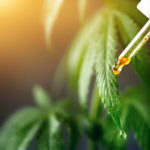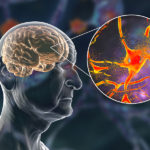By Bonnie Jenkins, Advanced Natural Wellness
New Year’s Eve is almost here—and for many of us, that means tipping back a few drinks to ring in 2010. But before you pop that cork, let’s finally settle the argument. Is alcohol a health tonic or a poison?
The truth is that it’s both, depending on the dose. Moderate drinkers tend to have better health and live longer than those who are either abstainers or heavy drinkers. In addition to having fewer heart attacks and strokes, people who limit themselves to one or two drinks a day are generally less likely to suffer from high blood pressure, peripheral artery disease, Alzheimer’s disease and even the common cold. Sensible drinking also appears to be beneficial in reducing or preventing diabetes, rheumatoid arthritis, osteoporosis, kidney stones, digestive ailments, poor cognition, Parkinson’s disease, hepatitis A, pancreatic cancer, macular degeneration (a major cause of blindness), angina, ulcers, erectile dysfunction, hearing loss, gallstones, liver disease and poor physical condition in the elderly.
With all of that going for it, you may be ready to pour a stiff one right now. But, you are probably aware that alcohol also has a dark side. Heavy drinking is a major cause of preventable death throughout the world. In the U.S., alcohol is implicated in about half of fatal traffic accidents. It can also damage the liver and heart, harm an unborn child, increase the chances of developing breast cancer, contribute to depression and violence, and interfere with relationships.
Alcohol’s two-faced nature is because the active ingredient in alcoholic beverages—a simple molecule called ethanol—affects the body in many different ways. It’s this substance that alters your mood, concentration and coordination. But ethanol also directly influences the stomach, brain, heart, gallbladder and liver. And it affects your cholesterol and triglyceride levels, the insulin in your blood, inflammation and coagulation (blood clotting).
So how can you make sure that alcohol’s Jekyll doesn’t turn into Hyde during your celebration? Again, it’s all about moderation. The medical researchers I know generally describe moderation as one to three drinks per day. Consuming less than half a drink per day will only give the average person very small health benefits. Four or five drinks may be moderate for large individuals but excessive for small or light people. Because of their generally smaller size and other biological differences, the typical woman should generally consume 25 to 30 percent less than the average man. And, of course, recovering alcoholics, those with any adverse reactions to alcohol and those advised against drinking by their doctors should avoid alcohol completely.
Are You Suffering From...
- Love handles and a pot belly
- Romance that isn't what it used to
- Forgetfulness and inattention
- Low (or no) strength and endurance
- A sex drive that's shifted into neutral...or worse
If so...you may have Mature Male Burnout. Click here to discover more about this unique condition and what you can do about it.
A good rule of thumb is a maximum of two drinks per day for the average man, one daily for women. And we aren’t talking about a supersized cocktail. A drink is a 12 ounce can or bottle of beer, a five ounce glass of wine, or 1.5 ounces of liquor (either straight or in a mixed drink).
Whatever your drink of choice, moderation is key to a safe and healthy New Year. May 2010 bring you nothing but blessings. Happy New Year!
References:
Camargo Jr, C., et al. Prospective study of moderate alcohol consumption and mortality in US male physicians. Archives of Internal Medicine, 1997, 157, 79 – 85.
Ginter E. Ethanol and cardiovascular diseases: epidemiological, biochemical and clinical aspects. Bratisl Lek Listy. 2008;109:590-594.
Meyerhoff DJ. Health risks of chronic moderate and heavy alcohol consumption: how much is too much? Alcoholism, Clinical and Experimental Research. 2005;29:1334-1340.






